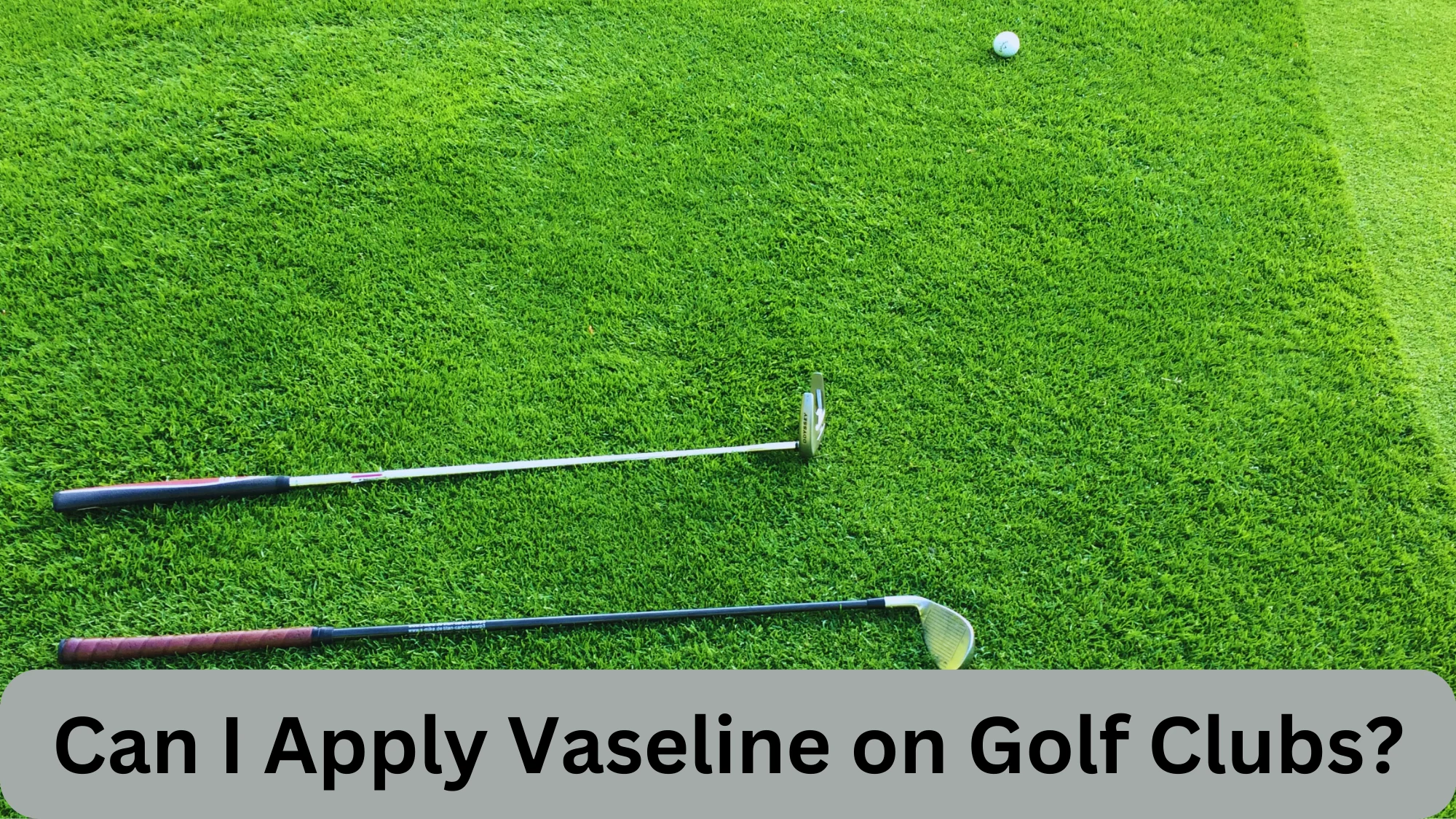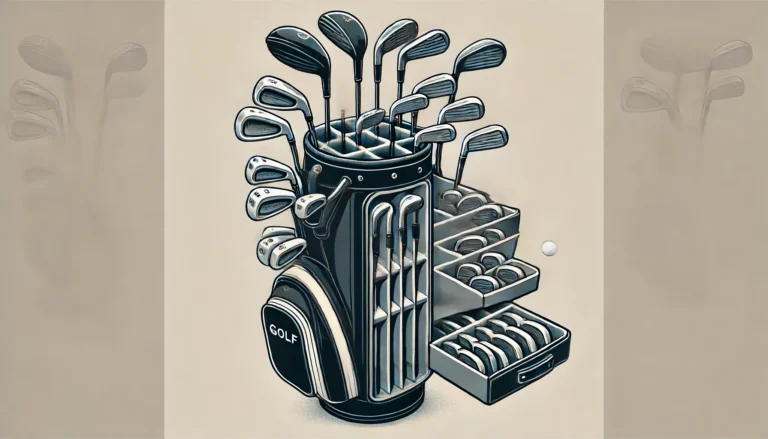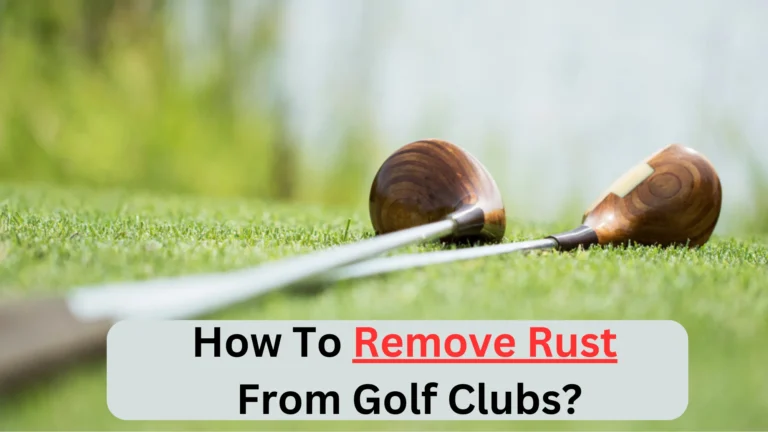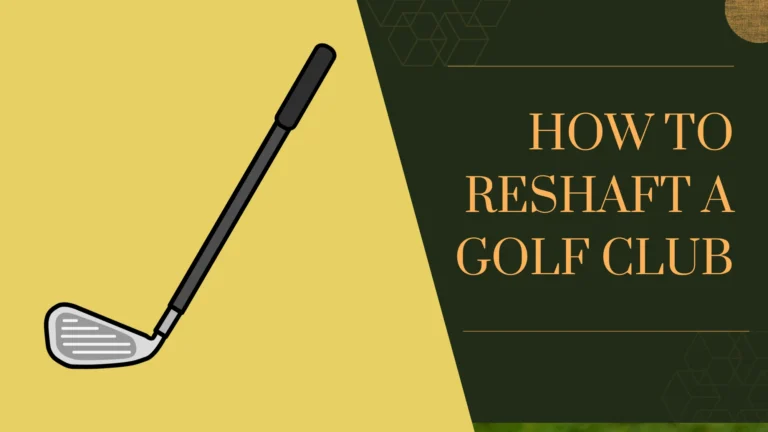Vaseline on Golf Clubs: Is It Allowed or Not?
“Vaseline on Golf Clubs” sparks a heated debate among golf enthusiasts: is it a clever trick or a rule-breaking tactic? The straightforward answer is that it’s not allowed. But don’t worry; I’ve got you covered with plenty of alternatives right here in this article.
First, let me explain why you can’t use Vaseline on a golf club.
Vaseline on Golf Clubs: Is It Allowed or Not?
“Vaseline on Golf Clubs” might seem like a sneaky way to improve your game, but guess what? It’s totally against the rules. Applying Vaseline breaks Rule 4.3a(3), which forbids altering the club’s performance.
Golf prides itself on being a game of integrity and honesty. To maintain fairness, the United States Golf Association (USGA) and the R&A have established comprehensive rules. These rules cover the following:
- Equipment standards
- The way the game is played
- What players are allowed to do with their equipment during a round.
The Impact of Vaseline on Golf Club Performance
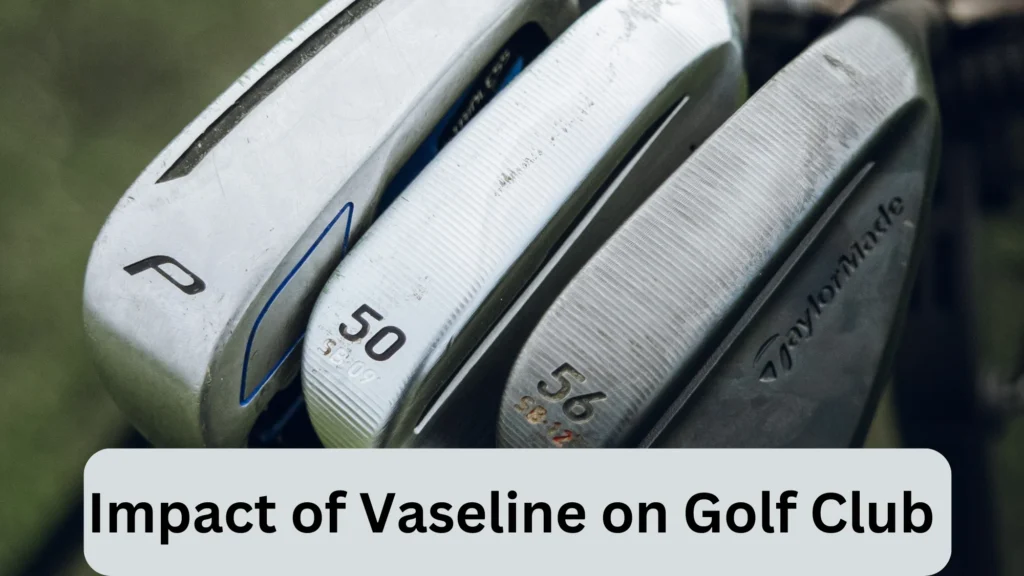
Applying a substance like Vaseline to the face of a golf club can have noticeable effects. It can reduce the friction between the ball and the club surface. As a result, it minimizes spin and help the ball travel in a straighter path.
Here are the reasons why golfers put Vaseline on the clubs:
To Reduce Friction and Side Spin
The main reason some golfers might reach for the Vaseline is simple: they want to cut down on friction. Less friction means less spin, which can result in the ball flying straighter, especially if the golfers slice or hook their shots.
Gary McCord himself once applied too much Vaseline to his driver in a money game, which drastically reduced the ball’s spin and distance.
In Hopes of More Forgiving Shots
Vaseline can make a clubface more slippery, and this can mean more forgiveness on mishit shots. If a golfer doesn’t hit the ball just right, the extra slipperiness from the Vaseline can cut down on the side spin (that often sends the ball curving far off course).
To Manage Wet Conditions
Ever played on a soggy day? On a damp day, when the course is wet, and the ball is likely to pick up moisture. In these situations, some golfers think Vaseline might be their secret weapon to repel water.
Psychological Benefits
There’s also a bit of mind games involved in golf. Some golfers might feel more confident stepping up to the tee with their ‘secret weapon’, even if it’s placebo. They think they’re being sneaky, which can confidence boost. Whether real or imagined, the confidence can make you feel pretty good.
But always remember, using Vaseline on the club is considered a form of cheating.
Explaining Rule 4.1a(3) – Substances and Artificial Devices
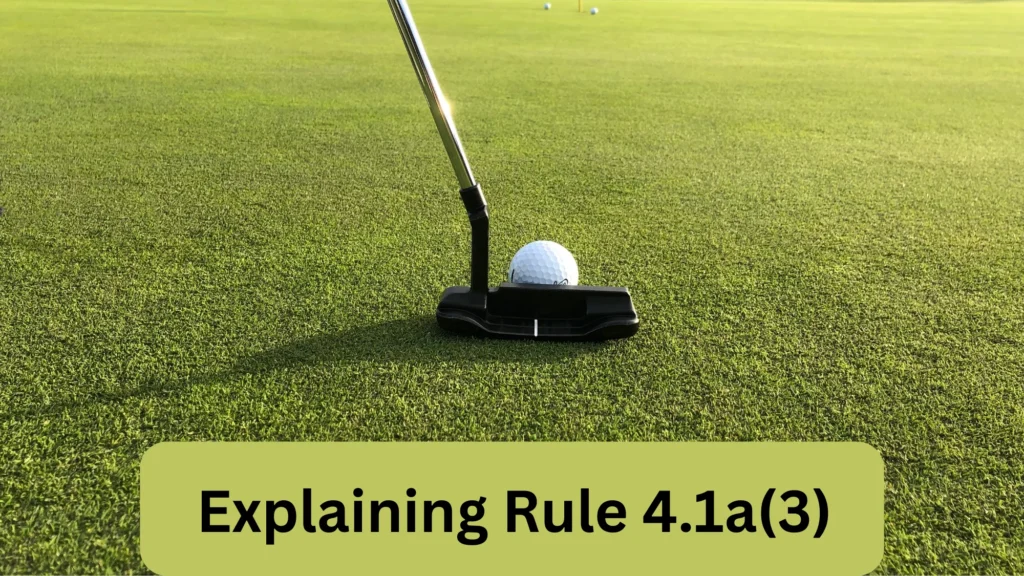
Rule 4.1a focuses on the allowed and prohibited uses of clubs during a round. Here are the key takeaways:
- The Prohibition: The rule states that a player must not make a stroke with a club that has been deliberately altered (like applying Vaseline).
- Clubhead Alteration: Messing with your clubhead in any way, be it its size, shape, or weight, is a big no-no.
- Substances: Applying substances could refer to anything that changes the way the club interacts with the ball, such as reducing side spin or the amount of backspin. Common substances that players might consider using (but are against the rules) include Vaseline, chapstick, grease, or even water or saliva.
The intent of this rule is to maintain the integrity of the game. I personally like it because it ensures that the success mainly depend on the player’s judgment, skills, and abilities.
Penalties for Breach of Rule
If a player breaches Rule 4.1a(3), the penalties are quite severe:
- In Match Play, if you mess up, you lose one hole for each time you broke the rule. But there’s a limit – you can only lose up to two holes in a round.
- For Stroke Play, it’s a bit different. You get a two-stroke penalty for each time you slipped up, with a max of four strokes in a round.
- Now, if you realize you’ve broken this rule before you hit your next shot on a new hole, you’ve got to stop using that club. If you don’t and play on, you’re out of the game – disqualified.
- And if you only find out you broke the rule after your round, but before the competition’s over? Well, it’s bad news – you’re disqualified.
However, there are a few exceptions:
- Cleaning: Cleaning the clubhead is not a breach of the rule unless it improves the playing characteristics of the club (in making a stroke).
- Wear and Tear: Normal wear and tear is not a breach. But if your club gets damaged mid-round, you can’t just swap it out unless the damage wasn’t your fault.
This detailed explanation of Rule 4.1a(3) shows the USGA’s commitment to fairness and the traditional values of the sport of golf. The rule ensures that all players are on a level playing field and that the outcome of the game is dependent on skill only.
Alternatives to Vaseline on Golf Clubs

Instead of looking for a quick fix like Vaseline, golfers should invest time in improving their game the right way. Here’s what they can do:
Get Professional Lessons
Nothing beats quality instruction. A good coach can correct a faulty swing, help with alignment, and provide tips on managing side spin.
There’s no substitute for practice, either. Hitting the driving range and working on the miss-hits is the only way to get better.
For training purposes, weighted heads or swing trainers can be used during practice to help improve strength and muscle memory. These should not be used during actual rounds but can prepare you better for when you do hit the course.
Use Legal Equipment Aids
You can use many legal equipment aids to help improve a golfer’s game. From training clubs to swing analyzers, these tools can make a significant difference without breaking the rules.
Club Maintenance and Cleaning
Simply keeping your club faces clean can improve ball contact and overall performance. Note that the dirt and grass residue can affect the spin and direction of the ball. So, wipe clubs before and after use.
I also recommend using head covers to protect the club’s face from scratches and dents when not in use.
Grip Enhancement
If you’re looking for better grip, there are legal grip enhancers available that can help you hold the club more securely. These products are designed not to alter the club’s performance but to help you with a firmer grip.
Similarly, regularly replacing worn grips with new ones can significantly improve your hold and comfort, which can positively affect your swing.
Moisture Management
For moisture management, carrying a dry towel or cloth to wipe down the club face and grips can help maintain performance in damp conditions.
Moreover, special gloves are there that can improve grip during play in rain without any need for applying substances to the club itself.
Also Read: How To Easily Remove Rust From Golf Clubs?
Stay Fit
Golf is physically demanding. Staying in shape can help improve overall performance and reduce the likelihood of injury.
The Bottom Line
Using Vaseline on golf clubs is a no-go in golf. It’s against the rules and against the spirit of the game. If you’re caught, you could be disqualified. So, stick to the rules and try the alternatives I’ve shared.
